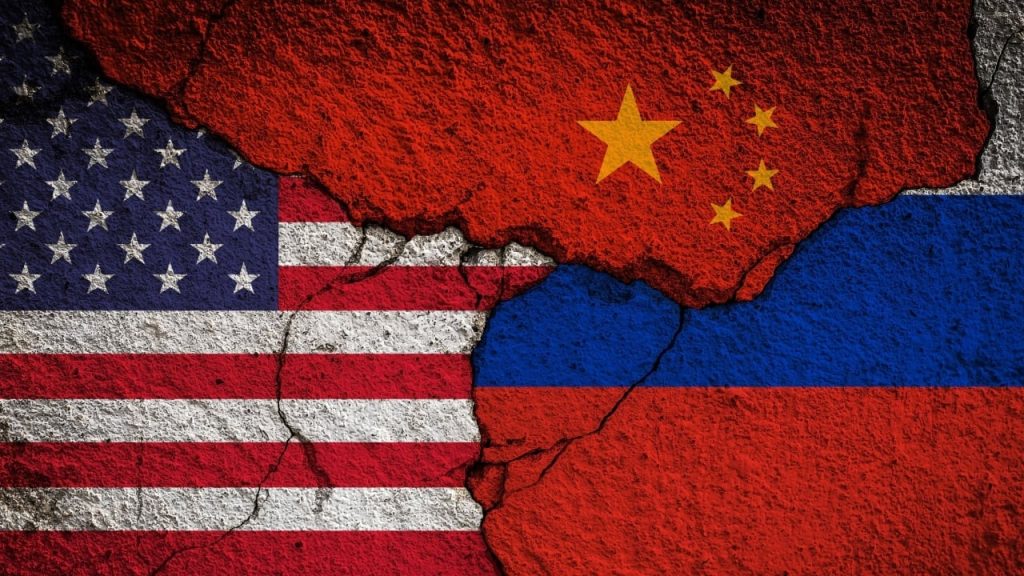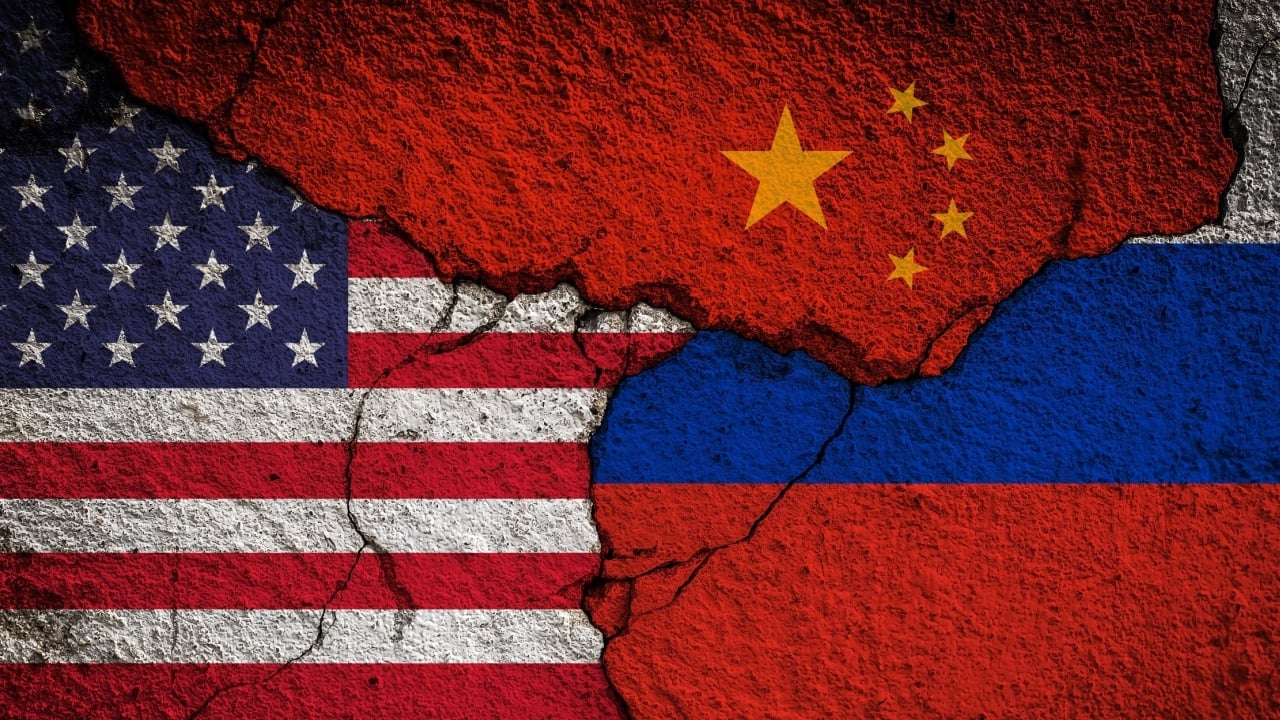
Navigating the U.S.-China Economic Relationship: A Critical Analysis Through Jeffrey Sachs’ Perspective
Introduction
The economic relationship between the United States and China is a complex tapestry woven with threads of cooperation, competition, and conflict. Economist Jeffrey Sachs has been a prominent voice in this discourse, offering a nuanced perspective that challenges conventional narratives. His analysis provides a critical lens through which to examine the high-stakes interplay between these two global economic powerhouses. This report delves into Sachs’ insights, exploring the implications of trade wars, technological competition, and the broader philosophical underpinnings of U.S.-China economic relations.
The Trade War: A Self-Defeating Strategy
Sachs’ critique of the U.S.-China trade war is both incisive and multifaceted. He argues that the imposition of tariffs, while intended to protect domestic industries, ultimately harms the U.S. economy. The increased costs borne by consumers and businesses erode purchasing power and competitiveness, leading to a decline in living standards. Moreover, Sachs contends that tariffs fail to address the root causes of the economic tensions, such as intellectual property theft and state subsidies.
The global ramifications of the trade war are equally concerning. Sachs warns that the disruption of international trade flows and the resulting instability in financial markets undermine the rules-based international order. This instability can lead to a slowdown in global economic growth, with adverse effects on both the U.S. and China, as well as the rest of the world. The trade war, therefore, is not just a bilateral issue but a global one with far-reaching consequences.
Beyond Tariffs: The Fundamental Conflict
Sachs’ analysis extends beyond the immediate impacts of the trade war to the deeper philosophical and strategic differences between the U.S. and China. He identifies a fundamental conflict rooted in differing worldviews and strategic objectives. The U.S. perceives China’s economic and technological advancements as a threat to its global dominance, leading to a desire to contain China’s rise through various means, including trade restrictions and technological barriers.
However, Sachs argues that this containment strategy is misguided. He posits that China’s economic progress is not a zero-sum game, where China’s gains come at the expense of the U.S. Instead, he suggests that China’s growth can benefit the U.S. through increased trade, investment opportunities, and collaboration on global challenges such as climate change. This perspective challenges the prevailing narrative of competition and conflict, advocating instead for a more cooperative approach.
The Case for Cooperation
Sachs is a staunch advocate for cooperation in the U.S.-China relationship. He believes that both countries have much to gain from working together on issues of mutual interest. One such area is climate change, where the U.S. and China, as the world’s two largest emitters of greenhouse gases, have a crucial role to play. Sachs argues that collaboration on clean energy technologies, carbon reduction targets, and climate finance can benefit both countries and the world.
Global health is another area where cooperation is essential. Sachs emphasizes the importance of joint efforts to prevent and respond to pandemics, develop new medicines, and strengthen healthcare systems in developing countries. The U.S. and China, with their vast resources and scientific expertise, can play a leading role in improving global health outcomes.
In addition to these areas, Sachs advocates for cooperation in trade, investment, and technology. He believes that a more open and collaborative approach can foster innovation, create jobs, and promote economic growth in both countries. While acknowledging that competition will persist, he argues that these areas can be managed through dialogue and negotiation rather than resorting to protectionism and confrontation.
The Dangers of the “China Threat” Narrative
Sachs has consistently warned against the dangers of the “China threat” narrative, which has gained traction in Washington. He argues that this narrative is often based on exaggerated fears and misperceptions, leading to counterproductive policies that harm both the U.S. and China. The “China threat” narrative overlooks the significant benefits that the U.S. has derived from its economic relationship with China, such as access to cheap goods, a large export market, and investment opportunities.
Moreover, the narrative ignores China’s constructive role in the global economy, contributing to poverty reduction, infrastructure development, and international cooperation. Sachs warns that the “China threat” narrative can lead to a new Cold War, characterized by escalating tensions, military build-ups, and ideological conflict. He believes that such a scenario would be disastrous for both countries and the world, emphasizing the need for a peaceful and constructive management of the U.S.-China relationship.
India’s Role: A Balanced Approach
Sachs has also offered advice to other countries navigating the complex U.S.-China relationship. Specifically, he has cautioned India against adopting an anti-China stance to curry favor with the United States. He argues that India’s interests are best served by maintaining a balanced and independent foreign policy, engaging with both the U.S. and China on issues of mutual interest.
Sachs believes that India can play a constructive role in promoting regional stability and economic development by fostering cooperation between the two global powers. This balanced approach is crucial for India’s long-term economic and strategic interests, as well as for regional stability.
Strategic Patience and Understanding
Sachs’ analysis of the U.S.-China economic relationship is characterized by a call for strategic patience and understanding. He urges policymakers to avoid short-sighted policies driven by fear and misperceptions, advocating instead for a long-term relationship based on mutual respect and cooperation. He believes that the U.S. and China can coexist peacefully and prosperously, despite their differing political systems and strategic interests.
This coexistence requires a willingness to engage in dialogue, find common ground, and manage areas of disagreement constructively. It also requires a recognition that China’s rise is not a threat to the U.S. but rather an opportunity to build a more prosperous and sustainable world. Sachs’ perspective challenges the prevailing narratives of competition and conflict, advocating for a more nuanced and cooperative approach to the U.S.-China economic relationship.
The Road Ahead: A Choice Between Confrontation and Cooperation
Ultimately, Sachs presents a clear choice: continue down the path of confrontation, driven by fear and a zero-sum mentality, or forge a new path of cooperation based on mutual benefit and a shared commitment to global prosperity. The decisions made today will determine the future of not only the U.S. and China but the entire world.
Sachs consistently advocates for understanding, dialogue, and a rejection of the “China threat” narrative as paramount to ensuring a stable and prosperous future for all. The stakes are undeniably high, and the path forward demands careful consideration and a commitment to a collaborative future. The U.S.-China economic relationship is a tightrope walk, and the choices made today will echo for generations to come.





